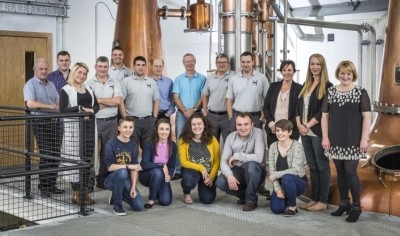Artificial tongue detects counterfeit whisky

The taster was used to sample a selection of whiskies – Glenfiddich, Glen Marnoch and Laphroaig – and was able to taste the differences between the drinks with greater than 99% accuracy.
A paper published in the Royal Society of Chemistry’s journal Nanoscale, ‘Whisky tasting using a bimetallic nanoplasmonic tongue’, described how the tongue used sub-microscopic slices of gold and aluminium arranged in a checkerboard pattern as its ‘taste buds’.
Identifying whiskies
Once submerged in whisky, scientists could measure how these ‘taste buds’ absorbed light, which allowed the team to identify different types of whiskies.
Dr Alasdair Clark, of the University of Glasgow’s School of Engineering and lead author of the paper, said: “We call this an artificial tongue because it acts similarly to a human tongue – like us, it can’t identify the individual chemicals which make coffee taste different to apple juice, but it can easily tell the difference between these complex chemical mixtures.
‘First of its kind’
“We’re not the first researchers to make an artificial tongue, but we’re the first to make a single artificial tongue that uses two different types of nanoscale metal ‘taste buds’, which provides more information about the ‘taste’ of each sample and allows a faster and more accurate response.”
While the experiment focused on whisky, the tongue can be used to test virtually any liquid, opening it up to a wide variety of applications.
“In addition to its obvious potential for use in identifying counterfeit alcohols, it could be used in food safety testing, quality control, security – really any area where a portable, reusable method of tasting would be useful,” Clark added.















